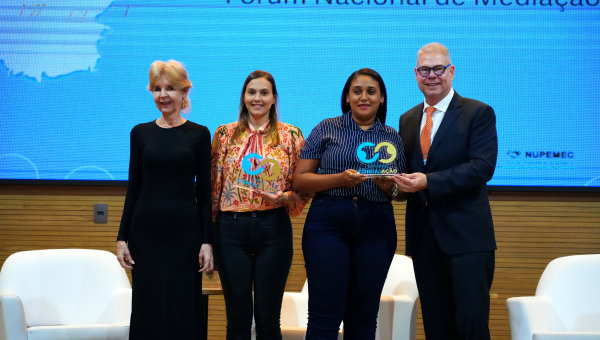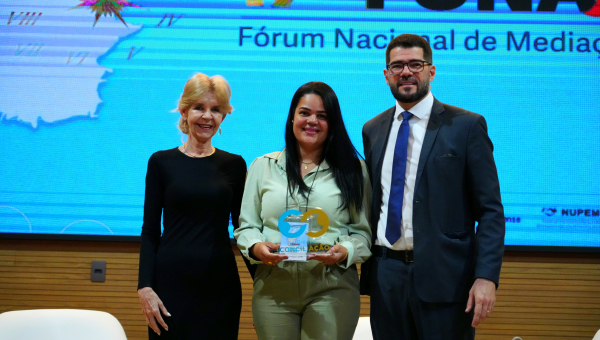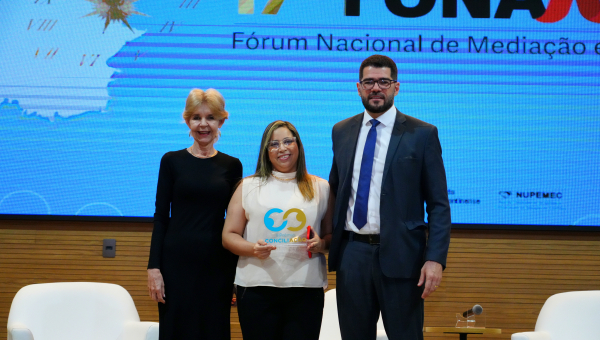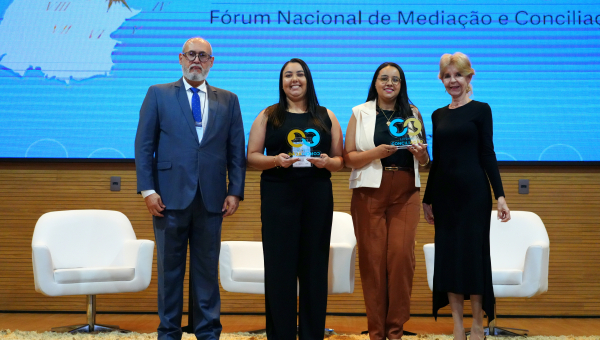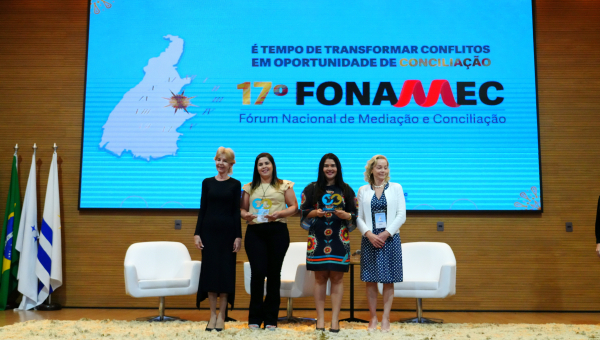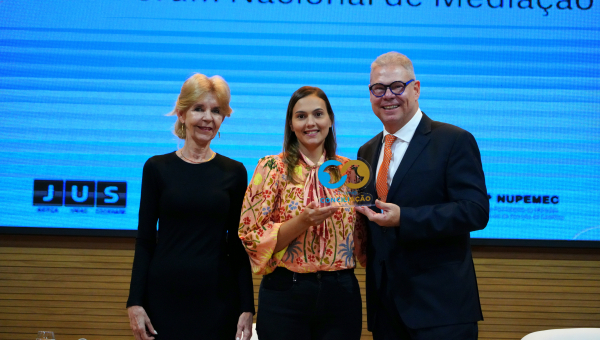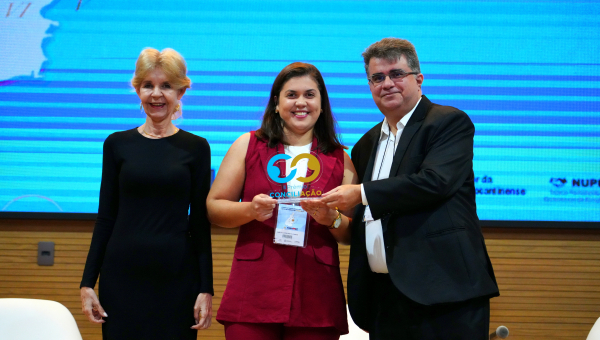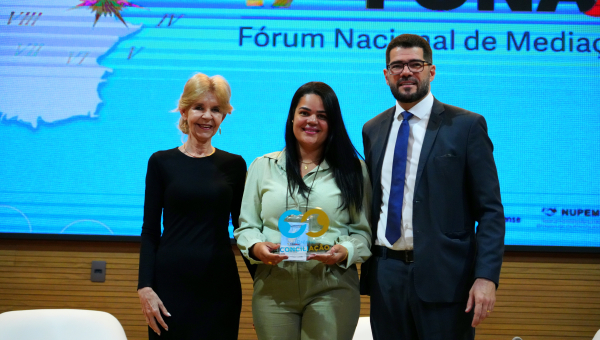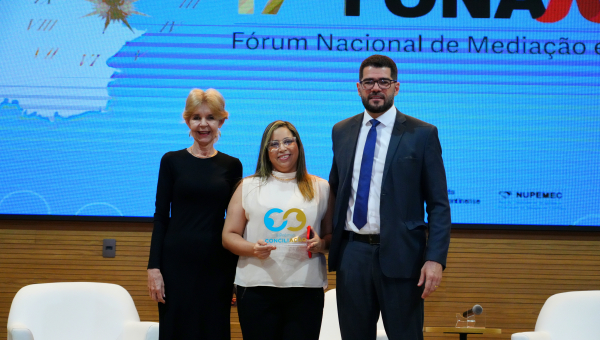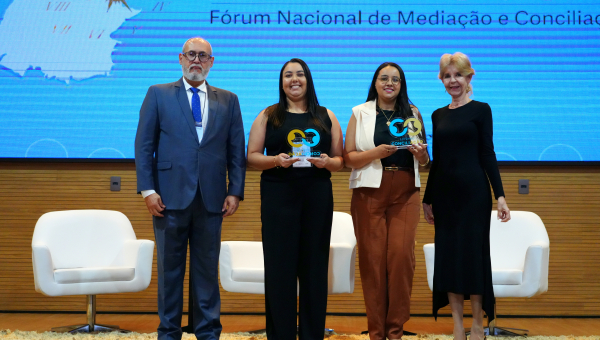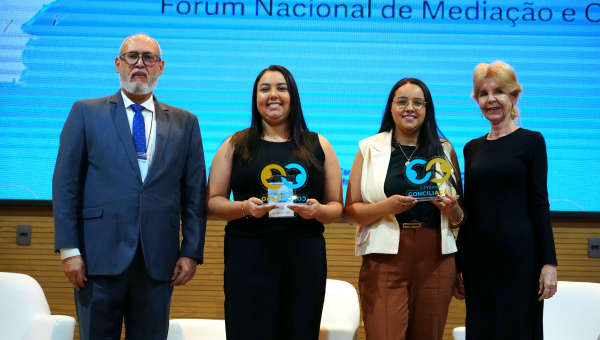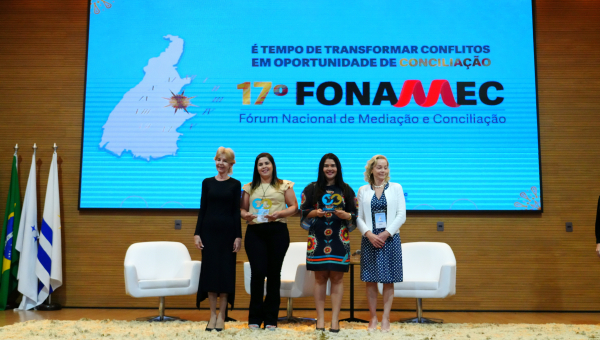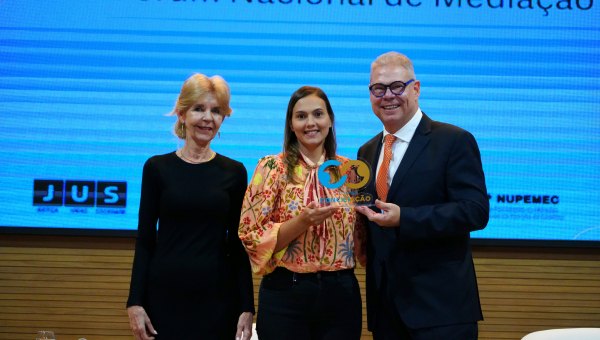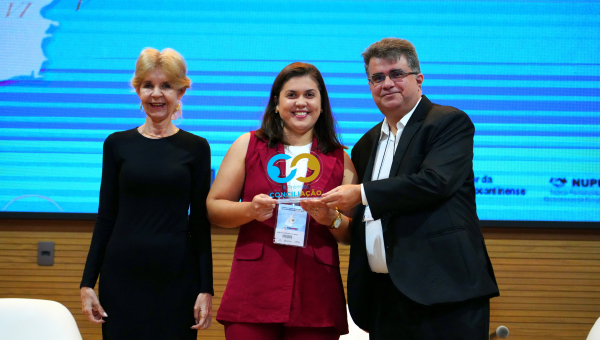
Successful conciliation and mediation initiatives developed by the Judiciary of the state of Tocantins in favor of a culture of peace were recognized with the Fonamec Conciliation Award and presented during the morning programming this Tuesday (June 17th), at the 17th National Forum on Mediation and Conciliation (Fonamec), which continues until this Wednesday (18th), in the city of Palmas.
The 2nd edition of the prize awarded first and second place in five categories, according to the number of hearings held: up to 150; from 151 to 300; from 301 to 500; from 501 to 1,000; and over 1,000 hearings. The Mobile Justice category awarded prizes only to the first place winner.
Among the winners, two names were drawn to take part in the 18th Fonamec, which will be held in November this year in the city of Cuiabá (MT).
Encouraging peacemaking
Created by the National Council of Justice (CNJ), the Fonamec Conciliation Award aims to foster collaborative solutions, strengthen dialogue between the parties and promote social peace. The award reinforces the role of the Judiciary in building a more effective and accessible Justice system.
Manual and technology in favor of conciliation
In addition to the awards ceremony, the morning programming included two launches that strengthen the work of the Judicial Centers for Conflict Resolution and Citizenship (Cejuscs).

The first was the Cejuscs Manual - 2025 edition, developed to guide the standardization and operation of the centers throughout the State. According to Judge Silvana Parfieniuk, coordinator of the Permanent Center for Consensual Methods of Conflict Resolution (Nupemec/TJTO), the document will allow for a greater qualification of the professionals and the services provided to the population.
“We hope that the manual is adopted in its entirety, so that our work is increasingly efficient and gives society the return it deserves," she said.
Another highlight was the presentation of the Accreditation System, a tool developed by the TJTO to facilitate the accreditation of professionals. The platform, already used by Nupemec and other sectors of the Court, allows selections, control of services and payments to be made digitally, quickly and securely.

According to the technology analyst of the TJTO, Helivan Araújo Lopes, the initiative aims to reduce bureaucracy and make accreditation management more efficient.
“The aim is to make it easier for professionals interested in providing services to the Court, and for the sectors responsible to have more control over the entire flow," explained the analyst.
The platform was set up and began operating in 2024, updating data on accredited members and opening new registrations.
Reflection on the right to health
Also during the programming, Judge Eduardo Álvares de Carvalho presented his book: “Judicial management of the right to health: the strategic role of the CNJ and Fonajus in the governance and sustainability of the public health system”.
CHECK OUT THE NAMES OF THE AWARDED |
|
Quantitative block of up to 150 hearings |
|
2nd Place - Vanessa Cristina Ramos da Silva Gomes 1st Place - Luanna Vargas da Silva Labre |
|
Quantitative block of 151 to 300 hearings |
|
2nd Place - Amanda da Costa Silva 1st Place - Silmaria Alves Lima Carvalho |
|
Quantitative Block of 301 to 500 hearings |
|
2nd Place - Larrubia Nara Sousa Gomes 1st Place - Synthia Santos Aguiar |
|
Quantitative Block of 501 to 1000 hearings |
|
2nd Place - Larissa Reis Bezerra 1st Place - Ana Géssica Bezerra Rodrigues |
|
Quantitative Block over 1000 hearings |
|
2nd Placer - Flambia de Jesus Barros Milhomens 1st Place - Nagila Inocencia de Souza |
|
Mobile Justice Category |
|
1st Place - Carlla Beatriz Santos Correia |
